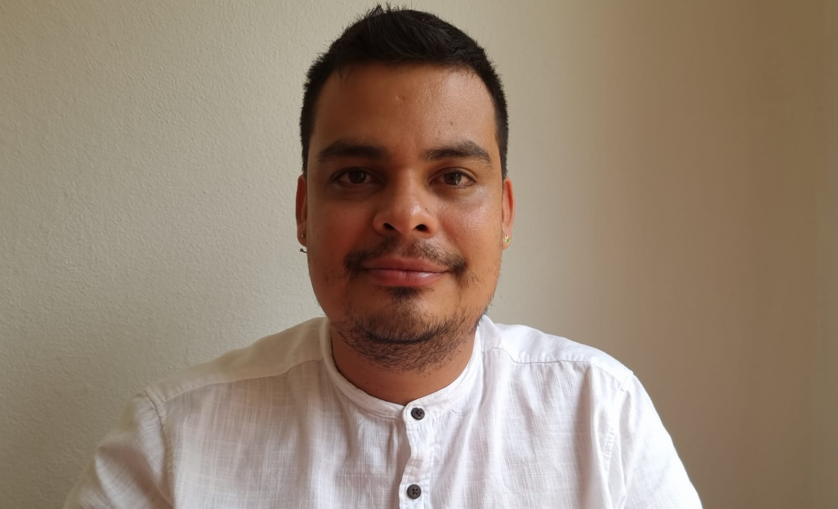
Nicaraguan environmental rights defender Amaru Ruiz Aleman will be speaking on the PBI ‘COP26 and land defenders’ webinar on November 6.
To register to hear him speak, click here.
Cities Defending Human Rights (Ciutats), a project coordinated by the Catalan Fund for Development Cooperation, notes: “He is a biologist, researcher and environmentalist, and the president of Fundación del Río, an institution founded in 1990 focused on conservation and sustainable development in South East Nicaragua.”
“The Indio Maíz Biological Reserve, one of the most important preserved areas in the country, falls within the foundation’s working area.”
That article adds: “At the end of 2018, Ruiz left Nicaragua after receiving numerous threats, being attacked in his own house and having received intel from different sources that the government was planning to arrest and process him. Now in Costa Rica, he is awaiting his right of asylum.”
November 2020 hurricanes
At the beginning of November 2020, hurricanes Eta and Iota, category 4 and 5 respectively, impacted Nicaragua and affected 60% of the territory.
Although it is not known how many people have been forcibly displaced from the Caribbean coastal communities of Nicaragua, Ruiz says: “It is important to say that climate change in the world (…) is generating a displacement of populations that are vulnerable.”
An advocate for Indigenous rights
On October 6, the Associated Press reported:
“One member of an Indigenous community in Nicaragua was killed and three others were missing after assailants shot at them on Nicaragua’s Caribbean coast. Environmentalist Amaru Ruiz, director of the Del Río Foundation, suggested it was the latest attack by settlers who have invaded Indigenous lands.”
That article adds: “Activists say many of the settlers moving onto the lands are former soldiers linked to timber and illegal logging interests.”
Charges against Ruiz
Though living in exile, Ruiz was charged last month with the alleged crime of “spreading false news using information and communication technologies.”
ProtectDefenders.EU explains: “On August 23, a group of non-indigenous individuals perpetrated a massacre against indigenous and land rights defenders in the Mayangna Territory of Sauni As, during which at least 13 people were killed.”
“This attack is part of a context of systematic and widespread violence against the Miskitu and Mayangna indigenous peoples, including intimidation and threats, assassinations, armed attacks, and forced displacement.”
“After this massacre, Ruiz has been targeted by the authorities in Nicaragua and charged with ‘propagation of false news through information and communication technologies’ under Cybercrime Law, in relation to the public statements he made on social media denouncing the massacre. An arrest warrant has been issued against him.”
Threats against Nicaraguan environmental defenders
Global Witness reports that last year: “Nicaragua saw 12 killings – rising from 5 in 2019, making it the most dangerous country per capita for land and environmental defenders in 2020.”
It adds: “In Nicaragua – with the most documented attacks per capita in 2020 – violence against indigenous and afro-descendent communities in the north-east and Caribbean coast regions of the country has accelerated in recent years. Research from the Oakland Institute documents community experiences of violence linked to settlers in indigenous territories and the expansion of cattle ranching, gold mining and logging.”
PBI webinar, November 6
Peace Brigades International will be holding a webinar on COP26 and land defenders that will take place on Saturday November 6 at 1 pm EST and 1900 CEST (European time) with simultaneous translation in English and Spanish.
It will feature Ruiz along with land and environmental rights defenders from Colombia, Guatemala, Honduras and Mexico.
To register for this webinar, please click here.

